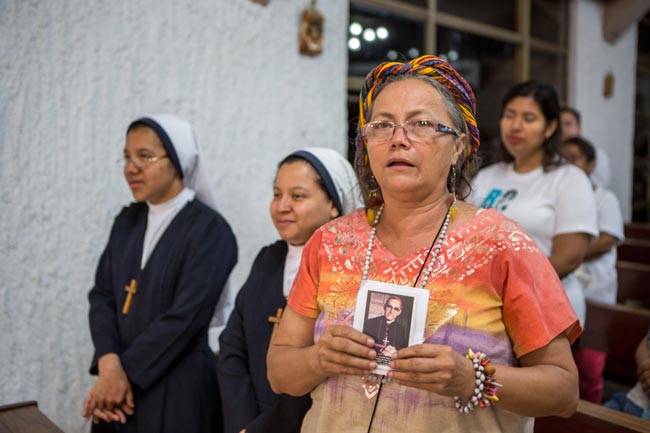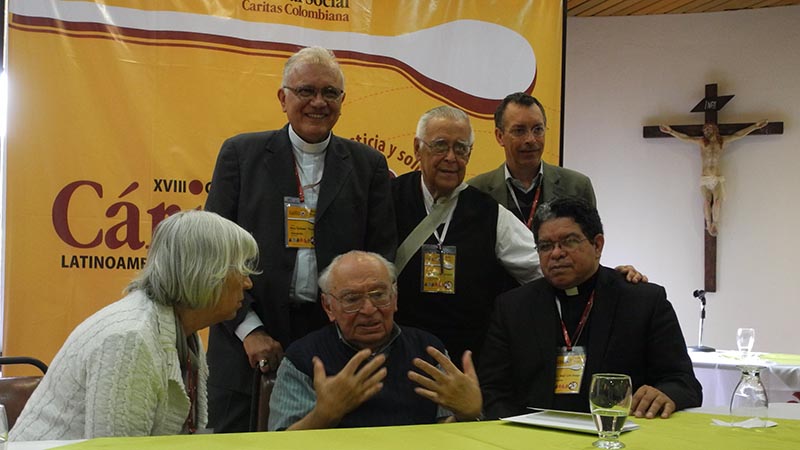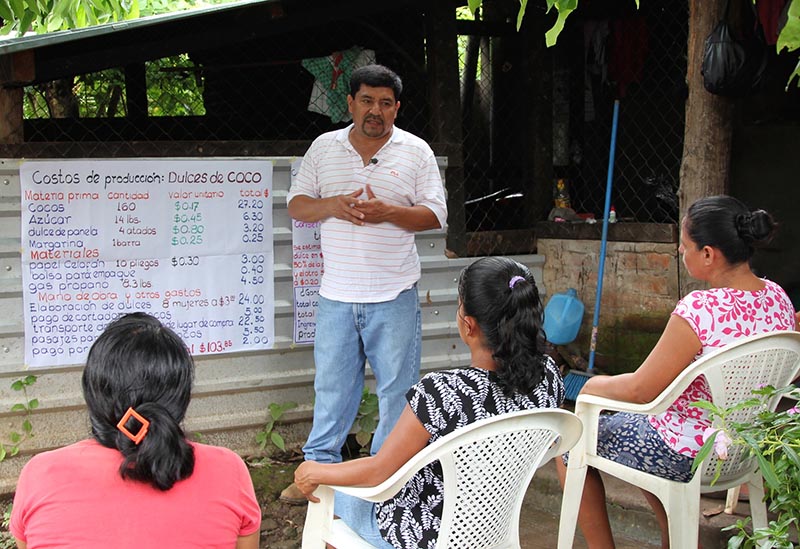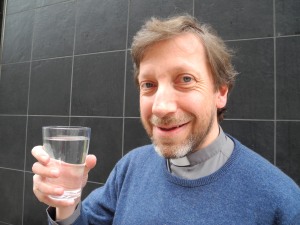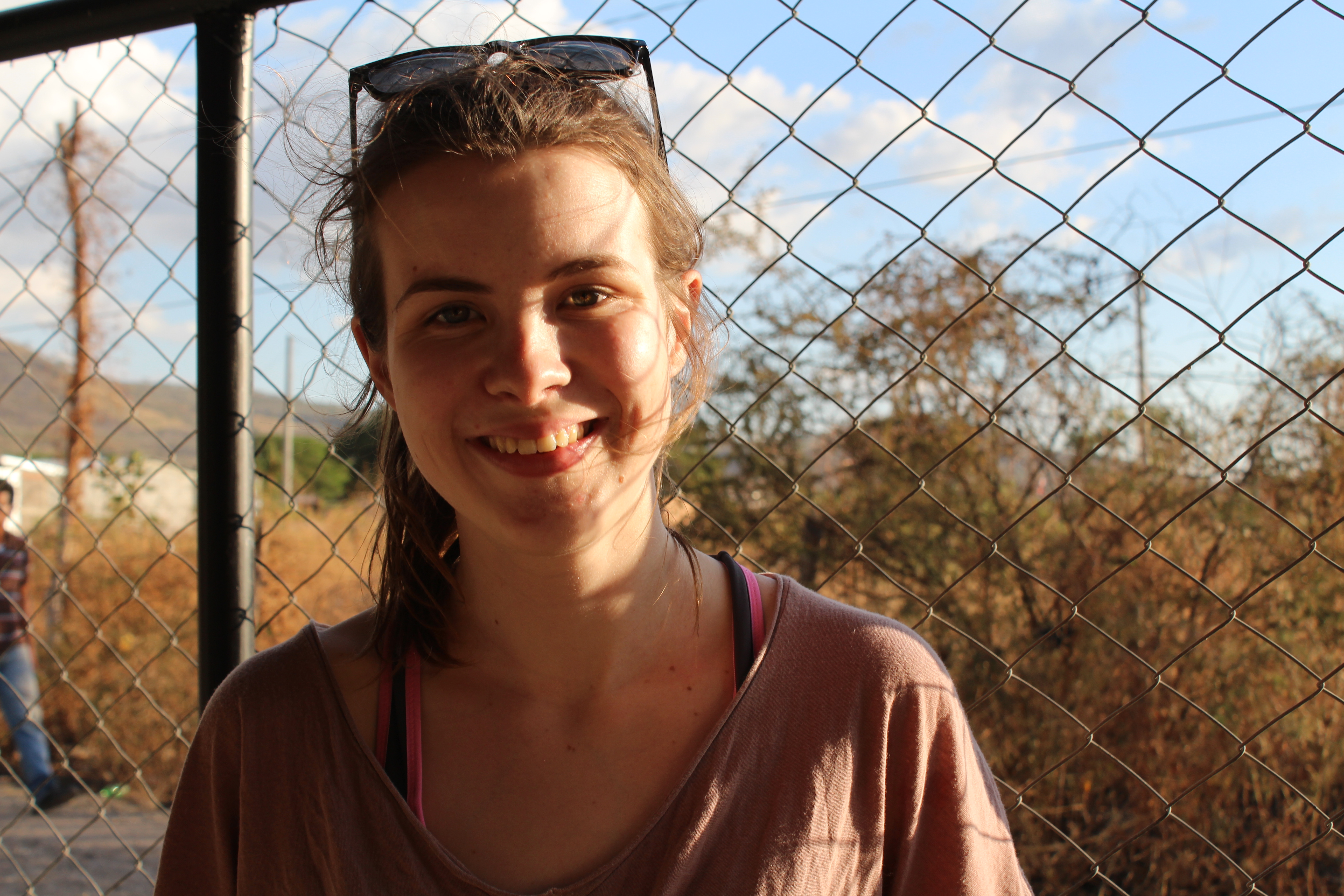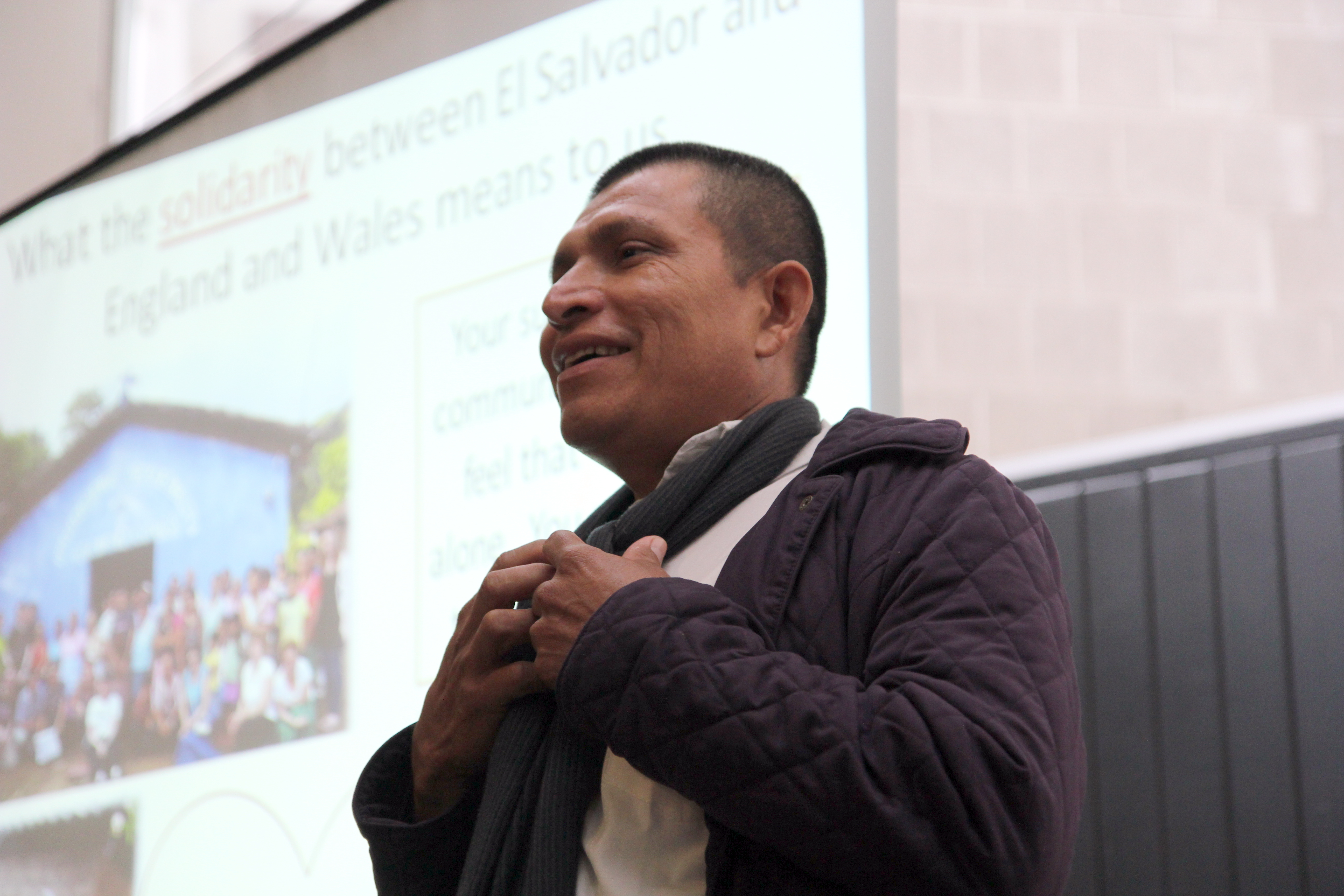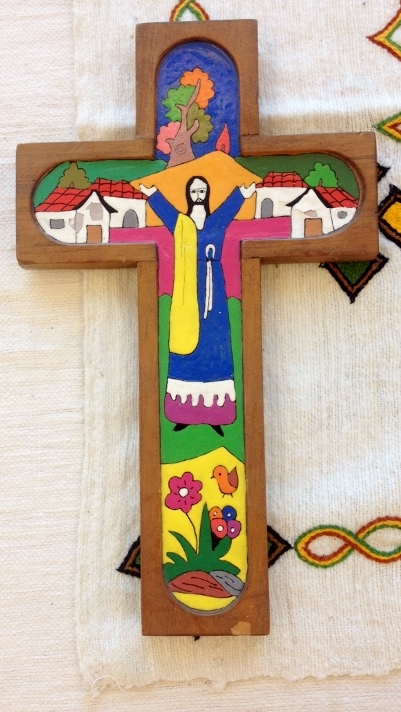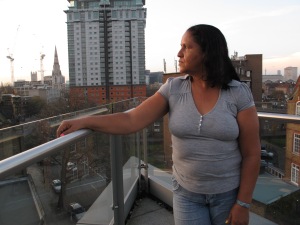Oscar Romero: Clare Dixon's reflections on his beatification
May 23, 2015
“Brothers, you are killing your fellow countrymen. No soldier has to obey an order to kill. In the name of God and in the name of the suffering people I implore you, I beg you, I order you, stop the repression!”
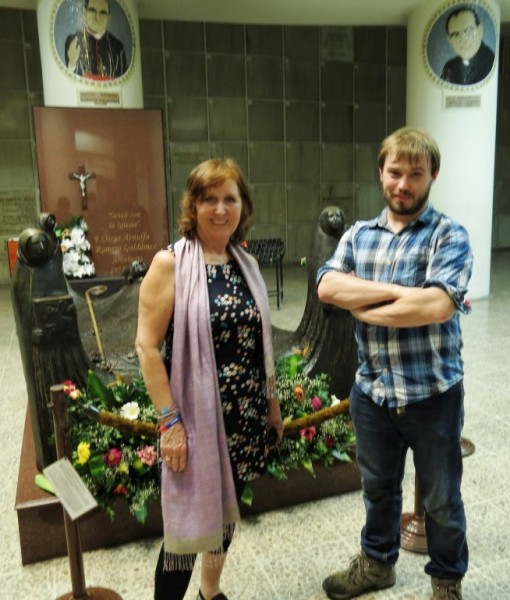
On 23 March 1980, Archbishop Oscar Romero called on the army in El Salvador to disobey their government and lay down their weapons. He must have suspected that by doing so he was signing his own death warrant.
About the author: Clare Dixon is Head of CAFOD’s Latin America Department and a trustee of the Romero Trust. She reflects on Archbishop Oscar Romero’s beatification today.
The next evening, Romero was celebrating a memorial Mass in San Salvador. The church doors were open and he probably noticed the car drawing up outside. An armed man climbed out, took aim and fired directly at his heart. Romero died instantly, becoming the third bishop in history to be killed in his Church, after Stanislaus of Poland and Thomas Becket.
Today’s ceremony for Romero’s beatification – declaring him “Blessed” in the eyes of the Catholic Church – will see crowds of up to half a million people gather in San Salvador, alongside at least nine Presidents and Church leaders from around the world. This recognition of Romero as a towering figure in Latin America, martyred “in odium fidei” – out of hatred for the faith – is a clear vindication of one of the great figures of the 20th Century, the moral equivalent of Martin Luther King, Nelson Mandela or Mahatma Gandhi.
Read our answers to your questions about Oscar Romero
Voice of the voiceless
In his three years at the head of the Church in El Salvador, where the military-dominated regime was propped up by the United States to combat a supposed communist threat, Archbishop Romero became the voice of the voiceless. He defended the poorer sectors of society against the violence of paramilitary death squads. His human rights office made daily rounds of the rubbish dumps in San Salvador searching for the bodies of people who’d been murdered, and they kept detailed records of the massacres carried out all around the country Continue reading “Oscar Romero: Clare Dixon's reflections on his beatification”
